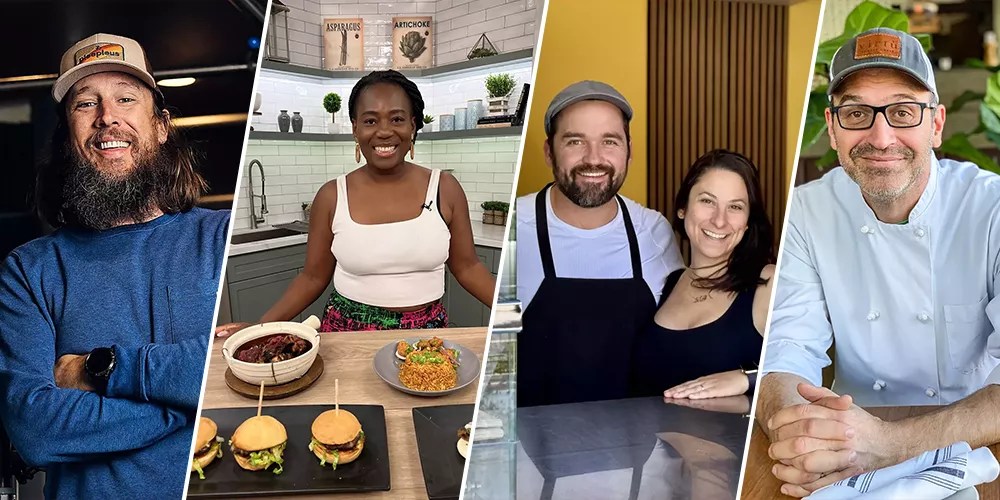
Collage by Eric Torres

Audio By Carbonatix
While pounding fufu inside her food truck, Lasgidi Cafe, chef Patience “Patty” Ogunbanjo started to feel lightheaded.
It was Juneteenth 2024 and she was serving Nigerian eats to revelers at Eastlake Park in downtown Phoenix.
Outside, it was a typical early-summer scorcher, topping 100 degrees. In the truck, it was a furnace.
The Lasgidi truck has a swamp cooler. But Ogunbanjo can’t run it when the gas is on, because the breeze of cool air blows out the stove’s flame.
On top of that, the truck’s generator had been giving Ogunbanjo and her team problems. While one of them looked at the generator, she and the others worked to serve the nearly 20 people in line.
“We were all like, drenched in sweat,” she says. “Without that electric, your exhaust is off, so all that heat is just circulating around you.”
The generator reluctantly came back online. Ogunbanjo started to feel nauseous. She sat down and sipped some water. Then, she insisted on getting up to help her team.
The last time she popped up to help, she blacked out. She fell toward the truck’s range. The chef broke her fall with her hand, getting gashed and burned in the process. After she cooled off and got bandaged up, Lasgidi Cafe packed up for the day.
When Ogunbanjo mentioned the episode to her doctor, she got a warning about operating during the hottest part of the year.
“You’ve been lucky these last couple of times,” Ogunbanjo says her doctor told her. “You don’t want to push it.”
In interviews with New Times, several restaurateurs called last summer the worst in years. They used phrase like “shockingly slow,” “uniquely shitty” and, most often, “brutal.”
For Ogunbanjo, the heat was downright dangerous. But the punishing conditions are teaching her and others how to cope. Here’s how she and other Valley restaurant owners are surviving this gnarly summer.
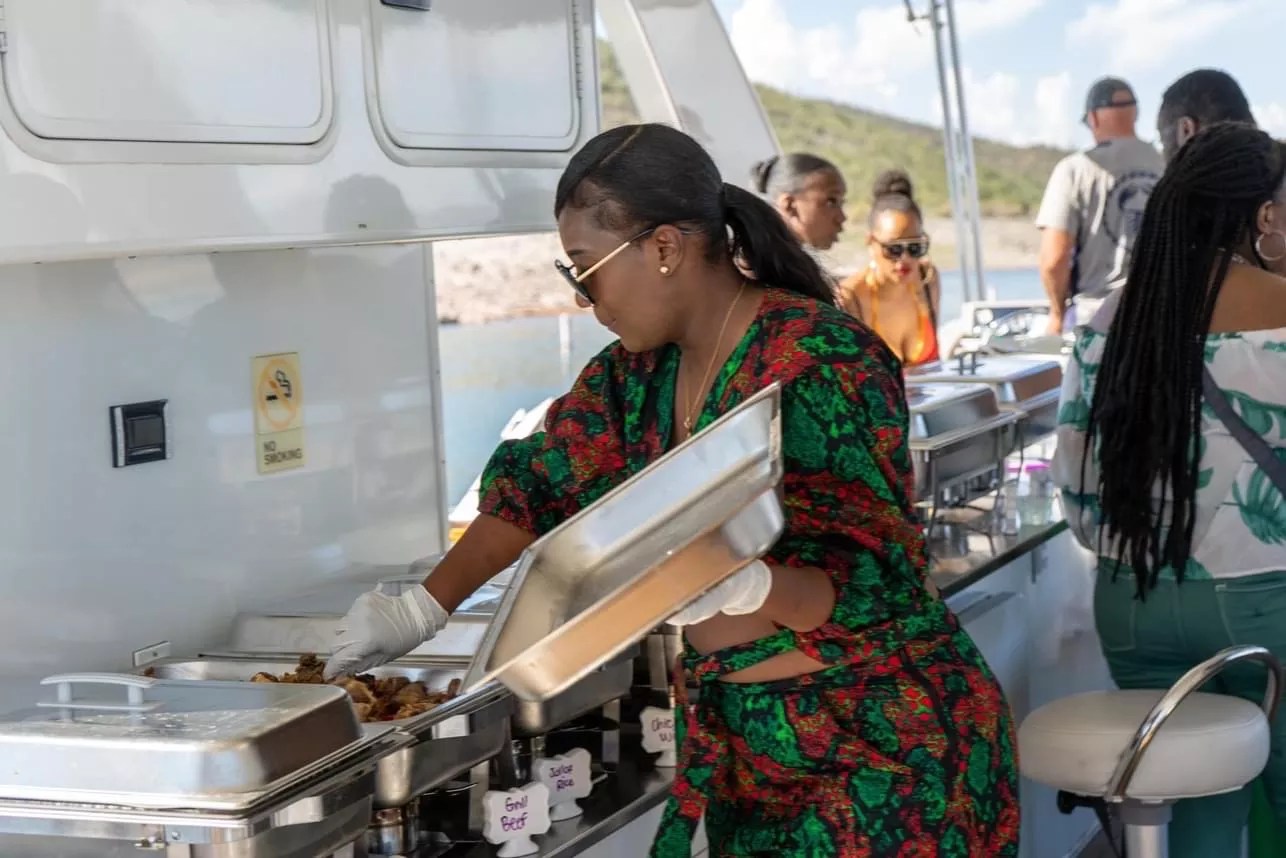
Lasgidi Cafe owner Patience “Patty” Ogunbanjo has battle scars from working in her food truck during the hot summer months.
Patience Ogunbanjo
‘Injury-bad’ at Lasgidi Cafe
When Ogunbanjo launched her food truck in February 2023, she “breezed through the nice season” and admittedly did not have a plan for a summer that ended up being the second-hottest Phoenix has recorded.
That heat gets magnified in a small space with burners lit, a fryer bubbling away and “strenuous” preparation for some dishes. One day, she took a picture of the thermostat inside the truck: It was 137 degrees.
“It was real bad – like injury bad,” she says. “I’m pretty sure that is absolutely unsafe.”
She saw a marked slowdown during the worst of the heat. She also didn’t feel she could expect folks to wait outside in the heat for their food either.
“At the end of our summer, I said to the team, ‘we’re not doing this again,'” she says.
After Ogunbanjo passed out at the Juneteenth event, she decided to heed her doctor’s warning. For the rest of the summer, the Lasgidi Cafe truck was largely idle. The chef instead lined up as many private events and group cooking classes as she could.
That also meant moving her team to a seasonal schedule and managing summer bookings mostly solo. The challenge, she notes, is that even with her truck garaged and less staff, her insurance and license costs, among others, remain.
Last year, Ogunbanjo took the truck back out in mid-August. It was too early, she says.
“Sometimes it’s a bit of a waste when we do go out in this extreme heat because we just don’t see a good turnout,” she says.
This summer season, Ogunbanjo is trying to be strategic about when she’ll bring her food truck out, aiming for events after sundown or when there are guarantees for a large turnout.
“Half of our things we send out are already prepared, so I can’t just put the meats back in the freezer or put the sauce back in the freezer. I’m stuck either trashing that or hoping someone will buy it off of me on Instagram,” she says. “And if you know anything about the cost of food, I can’t afford to throw away a slice of bread.”
This year, she’s taken note of restaurant closures and seen more businesses opting for summer breaks.
“Everyone’s just having to really take a couple of weeks off, just work out vacations or find new dynamics and ways to keep their doors open, keep the money coming in,” she says. “Summer is brutal in Arizona.”
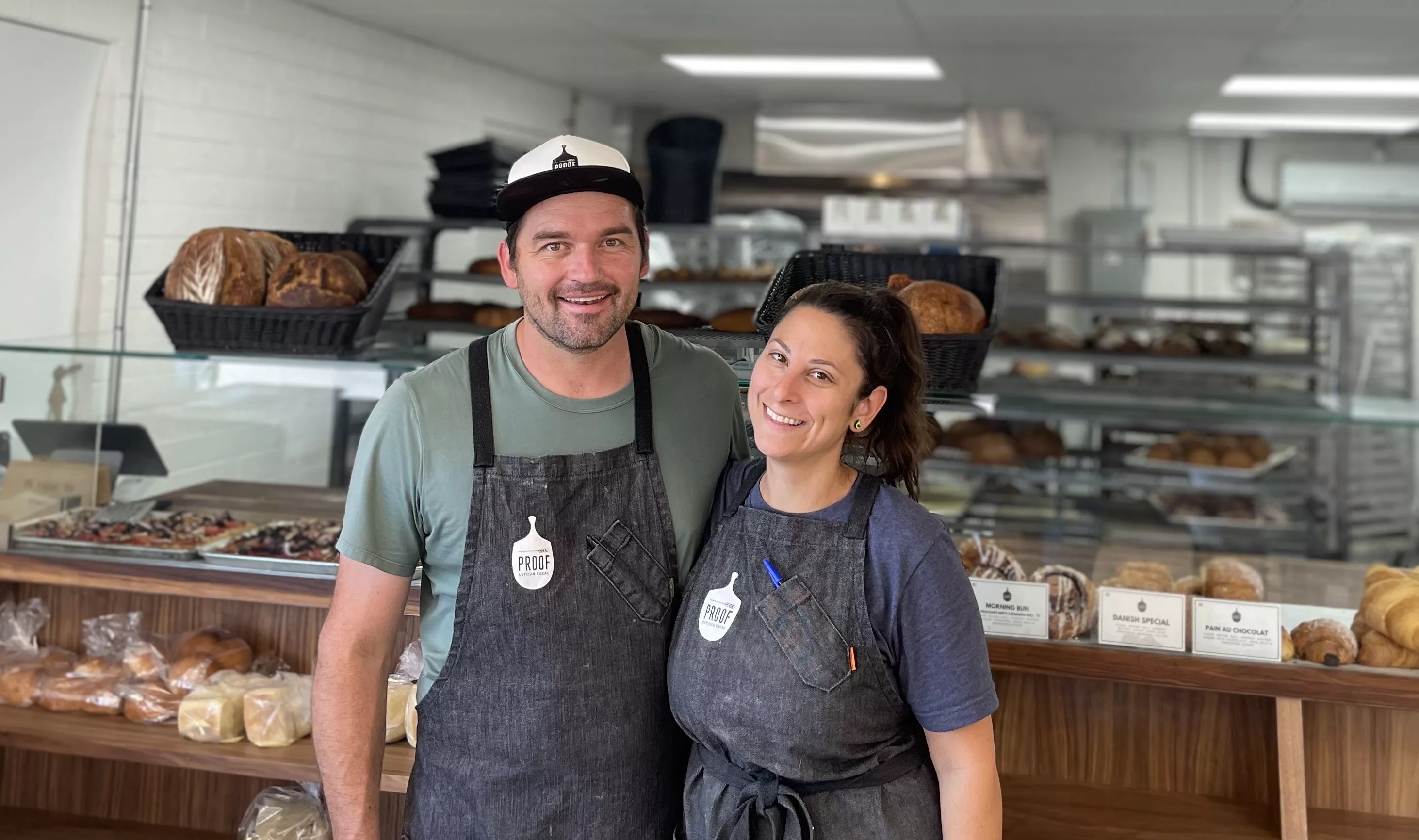
Proof Bread owners Amanda Abou-Eid and Jon Przybyl are focusing on growing to survive.
Sara Crocker
‘A shock to the system’ at Proof Bread
During the summertime slump, Jon Przybyl estimates that Proof Bread, the sourdough bakery he owns with his wife, Amanda Abou-Eid, is in the red about $20,000 each week.
“Summer, however you look at it, is a shock to the system,” Przybyl says. “It’s not long enough where you can make sustained changes, because there’s always that old ‘Game of Thrones’ saying, ‘winter is coming.'”
Although labor is where many restaurants and bars cut back, it’s something that Przybyl is unwilling to do. Learning the intricacies and techniques of sourdough baking takes time. Proof spends several months training employees to get them up to speed. And Przybyl doesn’t feel right leaving the people he relies on to be the ones left “holding the bag.”
“(That) means that our employees are paying the price,” he says.
Going from being busy in the winter to seeing a 50% downward swing during the summer is a “roller coaster ride,” Przybyl says.
“By the time you regroup from one summer, the next summer is already here, if you even regroup at all,” he says.
Looking for ways to smooth out that ride is all-consuming for Przybyl. The only way through, he and Abou-Eid have determined, is to grow to the point that they can “truly save for the summer.”
Heading into the slow season last year, the owners took a $250,000 line of credit “betting on the future.” At the time, Proof had three bakeries, located in north Phoenix, downtown Mesa and Litchfield Park, with a downtown shop planned for the fall. A series of delays prevented the bakers from getting keys to that space in the ECO PHX apartment building until March. The new shop opened in May, missing the high-season window to pay off that short-term debt.
Przybyl and Abou-Eid instead rolled it into long-term debt.
“For the next seven or eight years,” he says, “we will be paying for last summer.”
This year, Proof has been full steam ahead. The bakery is offering more ways to get its bread – extending hours, shipping loaves. To recoup seasonal losses from the Valley farmers markets that take a hiatus or cut hours, Przybyl treks to a Flagstaff market every weekend. The bakery has also started exploring restaurant partnerships, currently crafting burger buns for Arizona Wilderness Brewing Co.’s July burger of the month.
After getting the downtown Phoenix location open, Przybyl and Abou-Eid are turning their attention to their forthcoming outposts in Gilbert and Tempe.
The owners are unusually transparent about the grind of running a small business. In June they highlighted some of their challenges on social media. Their story resonated with fellow business owners and customers. In the week after they shared their story, Przybyl says, that $20,000 deficit was cut in half.
“That was people making choices,” Przybyl says. “If we could cut the problem in half, or maybe if even more people made different choices, we could eliminate the problem altogether. That would be my dream, not only for myself, but for many of my colleagues in the food service industry.”
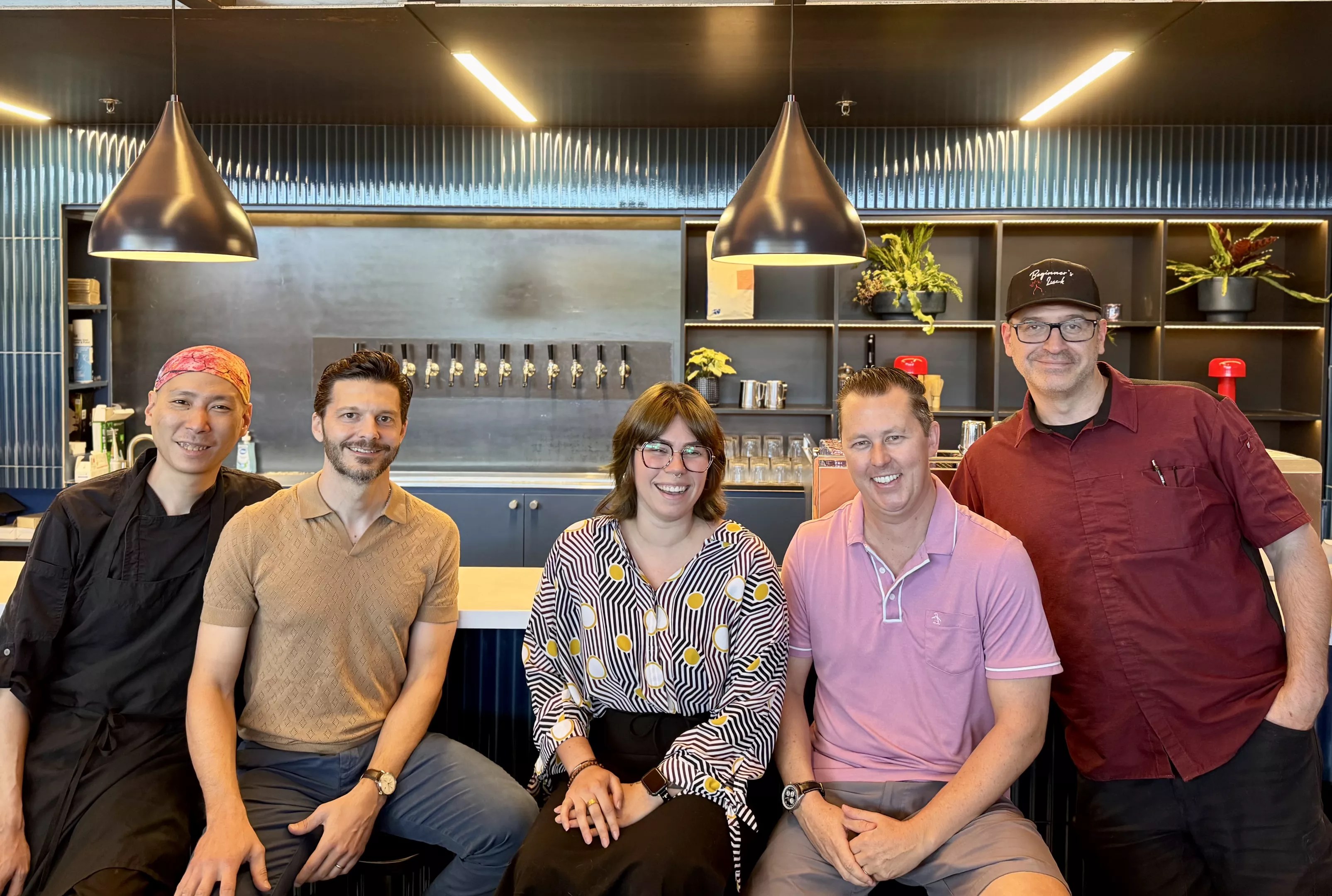
Chef Bernie Kantak (far right) and the In Good Spirits Hospitality team opened Minnow in early July.
Sara Crocker
‘Summers are tough’ for In Good Spirits Hospitality
In his nearly 30 years working as a chef in the Valley, Bernie Kantak has seen the restaurant scene ebb and flow. Last summer was the slowest he’s seen in about a decade.
“Traffic was lighter,” he says. “It just seemed like people were like, ‘alright it’s time to get back out there and see some things.'”
Kantak’s prime customers were summering elsewhere, meaning they weren’t at his popular Scottsdale and Phoenix restaurants: Citizen Public House, The Gladly and Beginner’s Luck.
His hospitality group’s strategy has been to “save a little money in the bank and kind of hope for the best.” This summer, their plans also included opening Minnow, a sushi and matcha bar in Phoenix’s Arcadia neighborhood.
As the In Good Spirits Hospitality group grows, the team adapts. Take food prices. Kantak says they’ll “bite the bullet” on the cost of some dishes but he’s axed others.
“Our best-selling entree was scallops for 13 years,” Kantak says, at Citizen and The Gladly. “I actually had to take them off the menu because they’re now 50 bucks a pound.”
With less dinner demand in these hot months, Kantak’s restaurant group is also offering a “Christmas in July” gift card bonus – a $25 perk that they normally reserve for the holidays. The hours at his Old Town restaurants, Beginner’s Luck and Citizen Public House, have also tightened.
“It’s weird how it works, but when you close on one day, the following day seems to be busier,” he says.
The aim for this summer is to “get butts in seats,” Kantak says – and not just at his restaurants.
After seeing last year’s slowdown, he went to Local First Arizona and the Arizona Restaurant Association to brainstorm solutions. The result of those conversations was the Devour Summer Chef Series, a five-part dining experience that kicked off in May and runs through September, and Arizona Chefs Week, featuring three-course chef-driven menus at around 40 independent restaurants, which the restaurant association will launch in August.
“With some of these other things that we’re trying to do and get(ting) other restaurants involved,” Kantak says, “hopefully our voices collectively really speak to people out there and let them know that summers are tough.”
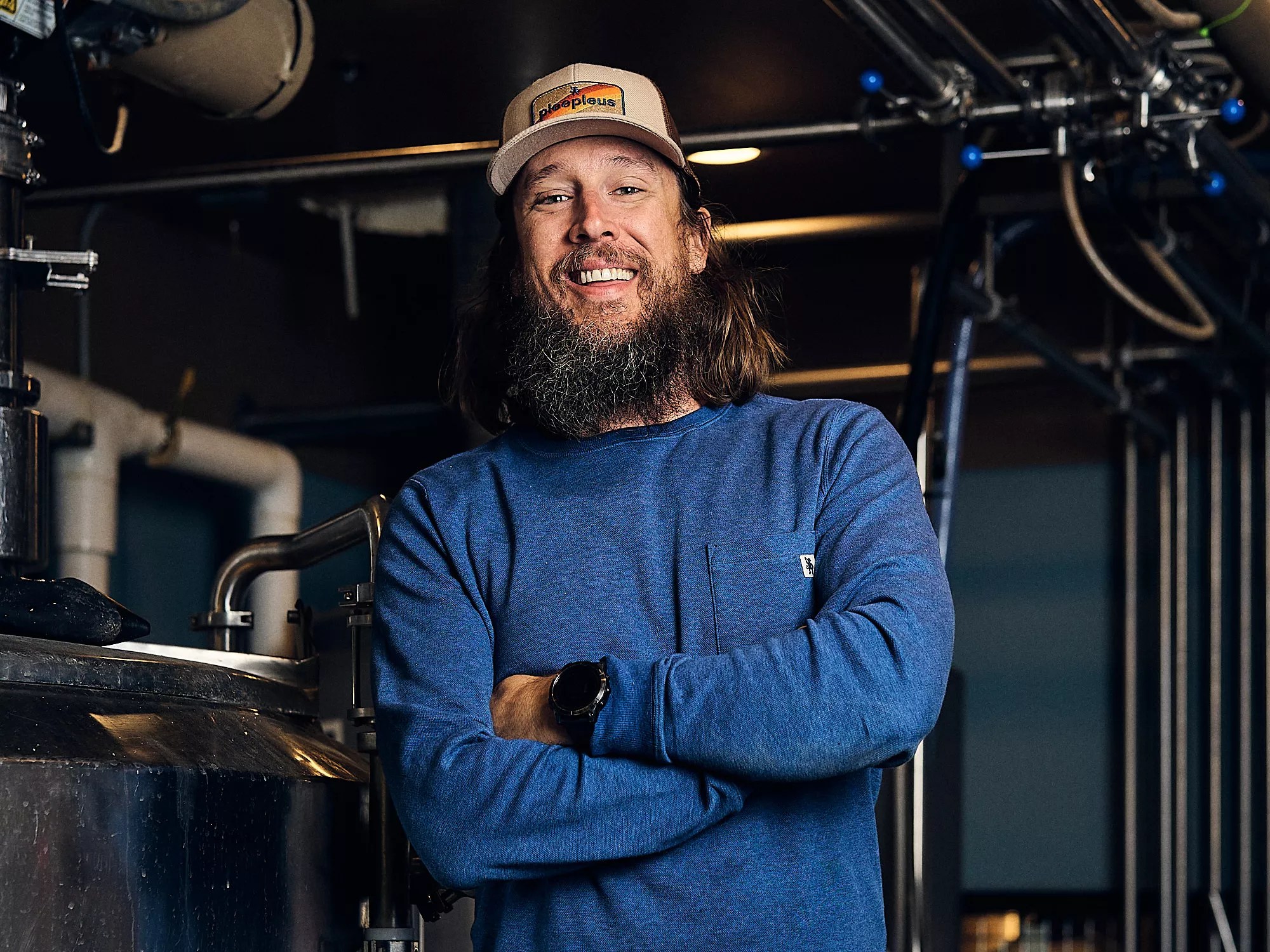
Arizona Wilderness Brewing Co. co-owner Jonathan Buford called last summer “uniquely shitty.”
KPL Studios
A ‘juggling act’ at Arizona Wilderness Brewing Co.
Yes, summer in Phoenix is hot. But that’s not the only problem, says Jonathan Buford, co-owner of Arizona Wilderness Brewing Co.
“It’s always been hot,” he says. “Right now, the dollar just isn’t going as far, is the biggest issue.”
That’s been true for the brewery, which has watched business costs balloon – on rent, labor, food and beer ingredients. That made last year “uniquely shitty,” in Buford’s words.
“Every cost compiled on a very slow year,” he says. “Then a bad summer comes along and says, ‘Hey, I want to be the hottest summer in history.'”
Arizona Wilderness’ downtown Phoenix brewpub is one of the most recognizable spots along Roosevelt Row. A mural of a cartoonish person on a bike points toward Wilderness’ massive patio populated by rows of picnic tables and clusters of red Adirondack chairs around fire pits. Overhead, a pergola, fans and misters work to cool the people underneath. During the hottest parts of the year, the patio often sits empty.
Paired with no rain for months on end, the heat “really affects the mindset of people,” says Buford, a self-described environmentalist.
In April, Arizona Wilderness opened a third location along Phoenix’s Miracle Mile. Unlike its downtown counterpart, the space is completely indoors and boasts a parking lot. It’s also the new home for Arizona Wilderness’ brewing operations. The space allows the brewer to grow its capacity while brewing more efficiently and reducing its carbon footprint.
Staying true to their ethos, Buford refuses to compromise on operating sustainably and supporting local farmers and ranchers. So while he’d rather talk about his company’s upcoming collaborations, he instead strategizes with his team about how to trim costs and manage higher health care premiums.
To do that, Buford’s team is directly asking for price relief from their hops, free-range chicken and linen suppliers. Already, Buford says, the staff has found ways to save some $60,000 on hops, for example.
“Can we get this (company) to be cheaper to run without compromising our values?” Buford says. “It’s a little juggling act. But we do need our big, big providers to help us out. Our little providers, they’re just like us. They can’t budge.”